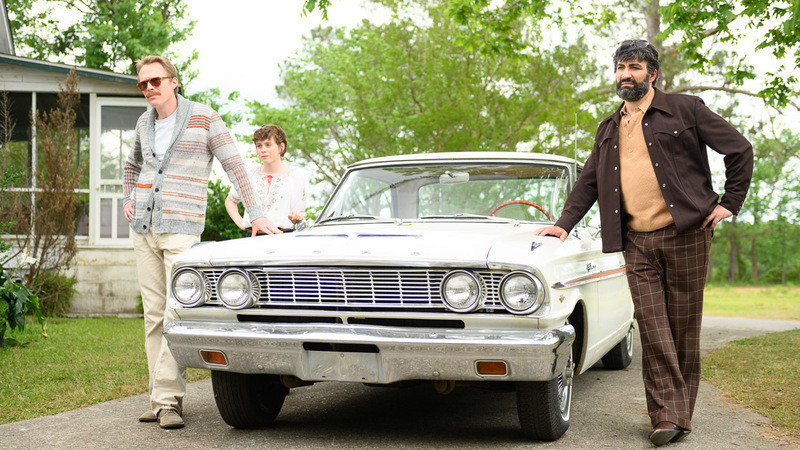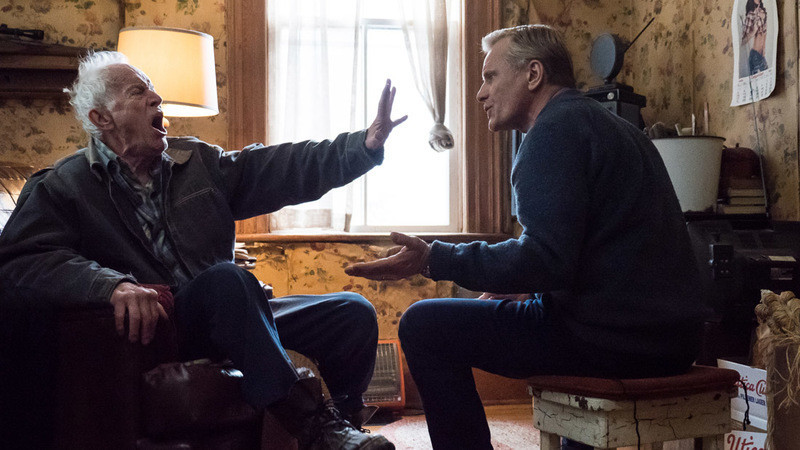
While a lot of the buzz at Sundance usually centers on finding the new, hot voices in film, largely in sections like Competition or Next, it’s also a platform for high profile premieres with household names. At their best, these premieres end up being films that are talked about all year. Recent stand-outs in the Premieres section of the program include “Manchester by the Sea,” “Leave No Trace,” and “Brooklyn.” However, there are often star vehicles in the section that feel like they were programmed more for who the festival could get on the red carpet than the quality of the overall film.
The best of the Premieres I saw in Park City over the first couple days of Sundance 2020 is Sara Colangelo’s “Worth,” the story of the legal team tasked with convincing grieving families to sign up for the September 11th Victim Compensation Fund. It’s this year’s “The Report,” another film with a great cast, solid production values, and a true story to entice viewers. It’s a little too neat and tidy at times, but Colangelo’s direction here is nuanced and emotionally resonant, allowing her performers to move beyond the melodrama and into something that feels genuine. She directs Michael Keaton to one of his best performances as a man who learns that people can’t be placed into simple formulas, and finds a way to humanize a story that could have been too dry in the wrong hands without pushing too far into heartstring-pulling.
Before the clean-up at the Pentagon and World Trade Center had really even begun in earnest, while families were still looking for missing loved ones, the government realized that there was an imminent crisis on the horizon in the form of lawsuits against the airlines. If families of the deceased sued the airlines to the tune of billions of dollars, it would wipe them out, stopping air commerce and decimating the economy. And so the September 11th Victim Compensation Fund was formed, and famed attorney Kenneth Feinberg (Keaton) was chosen to head it.
At first, Feinberg applied the same pragmatism he had used to settle cases involving Agent Orange, one that literally applies a formula that gives a dollar value to a life. There were CEOs and busboys in the World Trade Center when it was attacked, and their families simply need different things to pay mortgages, children’s educations, etc. And so a formula for the 9/11 victims is determined based on things like salary, life insurance, and projected earnings. It’s cold, but Feinberg tries to convince people that it’s accurate and will save the families from years of legal bills they can’t afford. It doesn’t go well.
What Feinberg learns is that immediate tragedy requires empathy and human consideration. And he vastly underestimates the rawness of the wounds. People who are still grieving don’t want a formula on a piece of paper—they really just want to be heard. And as Feinberg and his team hear their stories, they realize that people can’t be put into a spreadsheet. Amy Ryan plays his right-hand woman, Stanley Tucci is the community organizer who pushes back at his plan hardest, and Laura Bernanti devastates as the widow of a NY firefighter.
Colangelo directs “Worth” with a deep sense of compassion that other directors would have missed entirely. The film opens with stories of widows, and it never really loses that sense of human touch, even if some of the scenes feel a bit rushed and tidy in their narrative purpose. I wanted a slightly messier and less refined version of this story, but every time it threatens to become over-polished, Keaton or his excellent supporting cast find the humanity again. You can see Keaton considering his role in this chapter of history and how best to fulfill it, a good man who learns an important lesson. It’s harder than people think for an actor to believably convey “thinking,” but Keaton’s subtle performance captures a man who is constantly doing exactly that.

If “Worth” avoids the melodramatic, the other two early premieres dive in with both feet and drown in it. Take Alan Ball’s “Uncle Frank,” a period piece that finds a way to exploit both closeted sexuality and alcoholism in one soapy film. There are some decent, earnest performances in here, but they’re difficult to see through all the clichés, spread out in front of you like you’re playing melodrama bingo. Honestly, if Ball had leaned into the melodrama even more and made a true soap, “Uncle Frank” could have been fun in a campy way, but it’s the sense that he thinks this is moving, earnest storytelling that really sinks the film.
It is 1973, allowing for some nauseatingly simple period detail like name drops of Truman Capote and Ken Kesey, and Beth (Sophia Lillis of “It” fame) is starting college at NYU. Her favorite relative, Uncle Frank (Paul Bettany) teaches there, and Beth is eager to reunite with him, quickly learning Frank’s secret, he’s gay and lives with a longtime partner named Wally (Peter Macdissi). Frank and Beth’s extended family are filled with familiar faces like Margo Martindale, Steve Zahn, Judy Greer, Lois Smith, and Stephen Root as the homophobic patriarch who has ignored Frank for years.
When said patriarch kicks the bucket, Frank decides to journey home again, coming to terms with his awful father, dark past, fight with alcoholism, and more along the way. It’s a film that starts with promise—I liked the early dynamic between Lillis and Bettany—but succumbs to so many clichés that anything remotely genuine gets smothered. It’s a deeply frustrating movie as Ball has assembled a cast who can undeniably do deep work and then gives nothing but a shallow script.

Rampant homophobia and drama between a father and son are at the center of Viggo Mortensen’s “Falling,” the directing and writing debut for the Oscar-nominated star. Mortensen has made a film that feels deeply personal but also totally fake. Its emotional machinations are all turned up to 11 with Lance Henriksen giving an exaggerated performance that becomes abrasive instead of interesting. There’s nothing to hold onto in this story of a selfish asshole in the final days of his life and the son who has to put up with him one last time.
Willis (Henriksen) is deep in the throes of dementia, often not remembering where he is or who he’s with. And yet the truly awful sides of this racist, sexist, homophobic jerk still find their way to his consciousness, allowing for scene after scene in which he pushes everyone around him with aggressive slurs and emotional abuse. Willis was kind of an asshole his entire life, and he’s leaning into it in his final days. His son John (Mortensen) has brought him to California, which does not make the farmer happy and allows for all kinds of cultural clashes, including ones with John’s husband Eric (Terry Chen). Laura Linney plays John’s sister, someone who’s not quite as willing to not take Willis’ bait as her brother.
“Falling” is repetitive, grueling melodrama. Henriksen has been directed to shoot for the cheap seats, imbuing every scene with an abrasive, loud energy that’s simply not believable. There’s no character here. Honestly, the flashbacks to a young Willis (Sverrir Gudnason) and his wife Gwen (Hannah Gross) are more effective, but even those fail to answer the question of why we should care about the life of this truly awful man. That’s the biggest problem with “Falling”—whoever inspired Viggo Mortensen to make this movie clearly meant a lot to him, good and bad, but he never figured out how to make him mean a lot to us too.
Brian Tallerico is the Editor of RogerEbert.com, and also covers television, film, Blu-ray, and video games. He is also a writer for Vulture, The Playlist, The New York Times, and Rolling Stone, and the President of the Chicago Film Critics Association.





